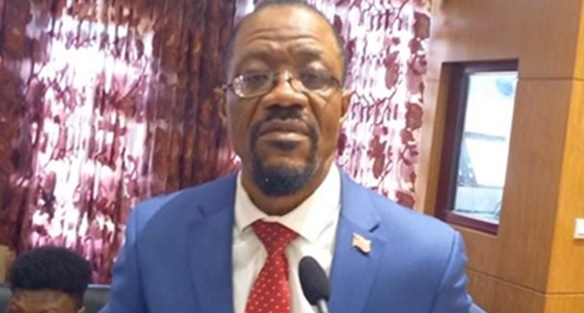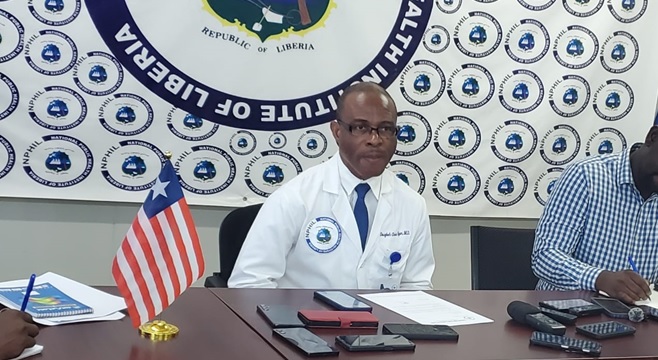MONROVIA, LIBERIA – The Supreme Court of Liberia has officially approved the voluntary discontinuance of the legal case involving J. Aloysius Tarlue, Jr., the suspended Governor of the Central Bank of Liberia (CBL), and the Executive Branch of the Liberian government. The case, which began with Tarlue’s filing of a writ of prohibition against his suspension, has now been formally closed after both parties reached a mutual agreement. This decision marks the end of a contentious legal battle that has drawn attention due to the high-profile nature of the case and its implications for Liberia’s financial governance.
The agreement, which was filed on January 13, 2025, stipulates that both Tarlue and the Executive Branch have jointly agreed to terminate the appeal proceedings without any further action. This voluntary discontinuance was approved by Associate Justice Yussif D. Kaba, who signed off on the stipulation that waives all court costs. Under the terms of the agreement, Tarlue is required to settle any outstanding fees owed to the Clerk of Court and other ministerial officers, but the details of the settlement have remained undisclosed.
With the legal dispute now concluded, the path has been cleared for the Senate to move forward with the confirmation of Henry Saamoi as the Acting Governor of the Central Bank of Liberia. The resolution of Tarlue’s case, following months of legal proceedings, now enables the government to finalize its leadership at the central bank. The confirmation of Saamoi, who has been serving in an acting capacity, is seen as an important step in stabilizing the financial institution.
Despite the resolution of the case, Tarlue’s future remains uncertain. The joint stipulation, which ended the legal proceedings, did not provide clarity on whether Tarlue will remain involved in Liberia’s financial sector or pursue other opportunities. The ambiguity surrounding his future has raised questions about the potential impact on his career and his relationship with the administration. While the case has ended in legal terms, the implications of the suspension and the court’s decision are likely to continue to reverberate.
In the legal notice submitted to the Supreme Court, Tarlue’s legal team, represented by the Gongloe & Associates law firm, and the Ministry of Justice, acting on behalf of the Executive Branch, outlined the terms of the voluntary discontinuance. The letter emphasized that the termination of the case was done with prejudice, meaning that it could not be reopened in the future. The parties agreed that the proceedings had reached a satisfactory conclusion for both sides, with no further action to be taken.
While the formal end of the case removes the immediate legal challenges facing Tarlue, the issue of his suspension and the subsequent legal actions have sparked debates over the handling of leadership positions in the Liberian government. Critics of the administration have questioned the transparency and fairness of the suspension process, while supporters of the Executive Branch argue that the move was necessary for the sake of accountability and the proper functioning of the CBL.
The resolution of this case also casts a spotlight on the broader challenges facing Liberia’s financial sector, particularly in relation to leadership stability and institutional trust. The Central Bank, as the cornerstone of the nation’s economic policy and financial oversight, has faced numerous challenges in recent years, including leadership turnover and political interference. The confirmation of Henry Saamoi as Acting Governor is seen as a step toward restoring confidence in the institution, but questions about long-term leadership remain.







